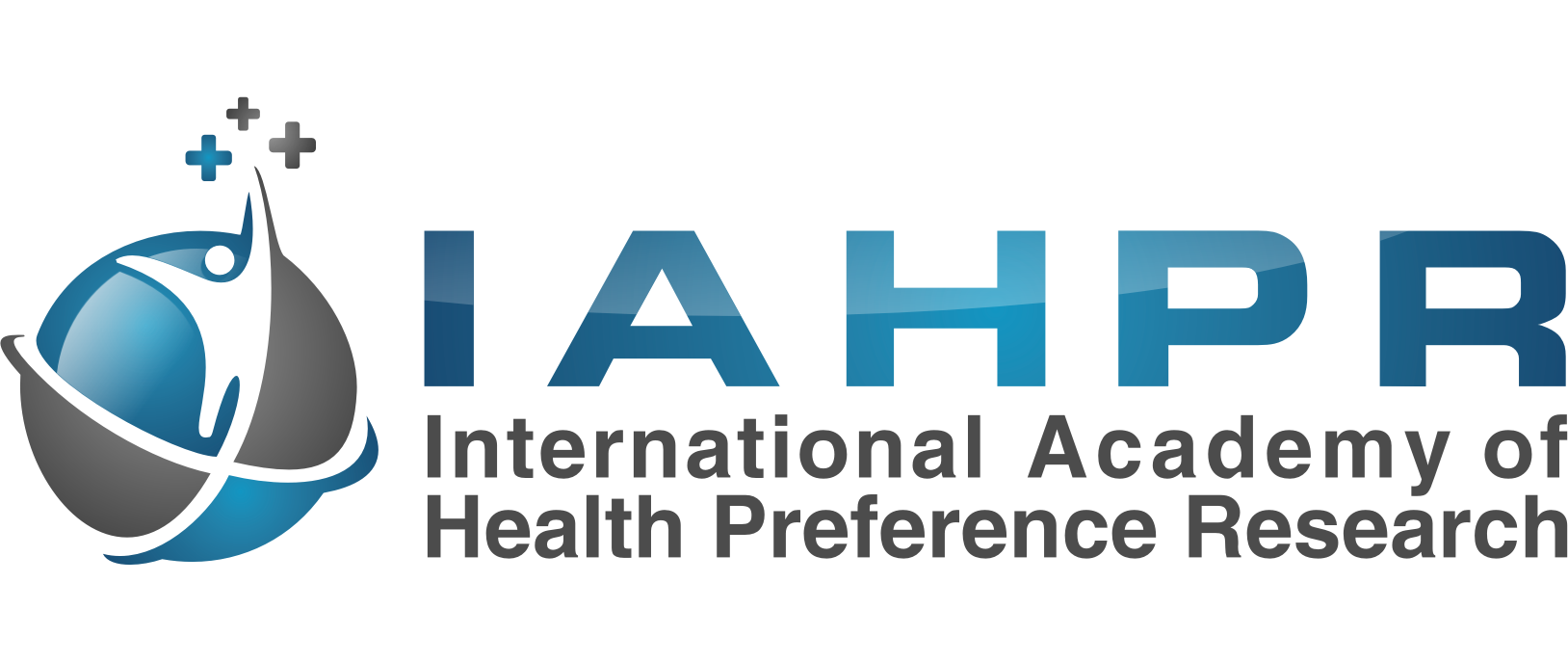The International Academy of Health Preference Research successfully launched its online seminar series in May 2020. Created by Axel C. Mühlbacher, Chair of the IAHPR Foundation Board, these free one-hour seminars were designed:
(1) To further build a research community around IAHPR by encouraging discussion of newly published HPR studies at both a theoretical and practical level.
(2) To introduce new theories and innovative methods that may be of interest to IAHPR members or that can be incorporated into the work of seminar attendees.
(3) To enhance understanding of recently published studies and effectively disseminate preference evidence, bridging the gap between research and policy. week prior to each event, links to the seminar are distributed to all IAHPR members.
Everyone is welcome to attend. If you are not an IAHPR member, ask a member to forward the link to you or send a request to contact@iahpr.org.
Are videos or text better for describing attributes in stated-preference surveys?
28 May 2020 at 7:00 (Durham, USA), Shelby D. Reed (presenter), Derek S. Brown (discussant), Axel C. Mühlbacher (moderator)
A picture is worth a thousand words: the role of survey training materials in stated-preference studies
25 June 2020 at 15:00 (Leeds, UK), Caroline M. Vass (presenter), Esther de Bekker-Grob (discussant), Axel C. Mühlbacher (moderator)
Thu 7:00 (Vancouver); Thu 11:00 (Buenos Aires); Thu 15:00 (London); Thu 16:00 (Berlin)
Finding out what matters in decision-making related to genomics and personalized medicine in pediatric oncology: developing attributes to include in a discrete choice experiment
30 July 2020 at 9:00 (Sydney, Australia), Richard De Abreu Lourenço (presenter), Ilene L. Hollin (discussant), Emily Lancsar (moderator)
Wed 16:00 (Vancouver); Wed 20:00 (Buenos Aires); Thu 7:00 (Singapore); Thu 11:00 (Auckland)
What is the seminar format?
The moderator will start the one-hour seminar by introducing the speaker, who will present for a 20 to 30 minutes. The presentation is kept brief, because the article is distributed in advance of the seminar. The presenter will highlight key findings and aspects not mentioned in the paper. The discussant will briefly summarize the article’s strengths and areas for development and conclude with a few questions. After the presenter responds, the moderator will coordinate questions received via the chat from the attendees. To encourage attendance and open discussion, the seminar is not recorded.
How to ask a question during the seminar?
Send your questions to the moderator using the chat feature. It avoid complications, all microphones will be muted during the first half of the seminar, except for the presenter, discussant and moderator.
Who may attend the IAHPR seminars?
These seminars are free and open to the academic and research community, as well as the public, healthcare and industrial sectors. Invitations are sent to IAHPR members who are welcome to forward them to interested persons.
How are papers selected for the IAHPR seminars?
Anyone can nominate a published paper. These papers will be reviewed monthly by the Foundation Board in terms of the mission of the Academy and aims of the seminar series (above). Papers presented by IAHPR members or published in the Patient are given greater consideration. If you wish to nominate a paper, contact one of the Board members, indicating the paper, presenter and a brief statement of support.
What time are the seminars?
IAHPR is an international organization with participating scientists from around the world; therefore, there are no good time for a seminar. To avoid normal sleeping hours and provide more equal access, the Board broke the globe into three regions by timezone and will rotate the IAHPR seminar by region and time. The times below are the earliest possible start time of seminar per time slot. Generally, seminars start on the hour of either a Wednesday or a Thursday; however, the start times may vary due to the needs of the presenter, discussant, and moderator. Also, these times represent Summer 2020 and will be adjusted for daylight savings as needed.
TIME #1: Wed 16:00 (Vancouver); Wed 20:00 (Buenos Aires); Thu 7:00 (Singapore); Thu 11:00 (Auckland) or later (2 possible start times)
TIME #2: Thu 7:00 (London); Thu 8:00 (Berlin); Thu 14:00 (Singapore); Thu 18:00 (Auckland) or later (5 possible start times)
TIME #3: Thu 7:00 (Vancouver); Thu 11:00 (Buenos Aires); Thu 15:00 (London); Thu 16:00 (Berlin) or later (5 possible start times
